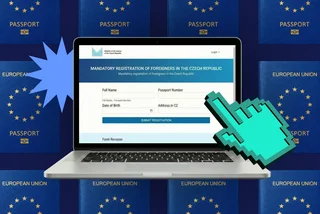Heading to the Croatian coast with your dog? Planning a trip to Finland with your cat? If your holiday plans include a four-legged companion, you’ll need to brush up on the pet travel rules, which vary depending on your destination.
Across the EU, the basic requirements are the same: dogs, cats, (and ferrets), must have a pet passport, microchip, and valid rabies vaccination. But beyond those essentials, specific countries add their entry conditions, and missing even one could cost you up to CZK 50,000 in fines or leave your pet stuck at the border.
EU Countries: The Basics
Microchip: Must be done before the rabies shot and passport.
Rabies vaccine: Required for pets over 12 weeks old; the animal can only travel 21 days after the first vaccination.
Pet passport: Must name the person traveling with the animal. If it's not the owner, written authorization is required.
Limit: One person can bring up to five animals.
Traveling outside the EU
Planning a trip to a third country (like the UK, U.S., or Turkey)? Things get trickier. Each country sets its own rules, and re-entry into the EU often requires proof of rabies antibody levels (a rabies titer test) if you’re coming back from a high-risk country. This test must be done by an approved lab and can take several weeks, so plan ahead. Pet insurance also helps deal with unexpected illnesses that can lead to travel issues.
Failing to meet return requirements could mean quarantine or fines. Some countries may also require import permits, health certificates, and even pet isolation upon your arrival.
Extra Rules for Specific EU Destinations
Ireland, Finland, and Malta: Your dog must be treated for tapeworms (echinococcus) 24 to 120 hours before arrival. A vet must confirm this in the passport.
Germany: Some breeds, including pit bulls and similar so-called “fighting breeds,” may be restricted or banned. Always check with local authorities before traveling.
France, Italy, and Spain: Generally follow standard EU rules, but individual airlines or ferry operators may have additional requirements such as muzzles, crates, or specific documentation.
Don't wait on pet passports
Pet passports in the Czech Republic are issued by over 3,000 certified vets, and getting one may require a vet appointment.
“Every summer, we see people showing up last minute and leaving disappointed,” said Petra Šinová, president of the Czech Chamber of Veterinary Surgeons. “Issuing a passport, vaccination, and microchip all take time, don’t leave it until the week before your trip.”
In 2024, vets issued around 72,000 pet passports for Czech pets — slightly fewer than before the pandemic, but still a significant number.
“Even within the EU, small rule differences can mean big problems if you’re not prepared,” says Šinová. You can read the comprehensive rules and guidelines about traveling with pets from the Czech Veterinary Authority here.













 Reading time: 2 minutes
Reading time: 2 minutes 
























